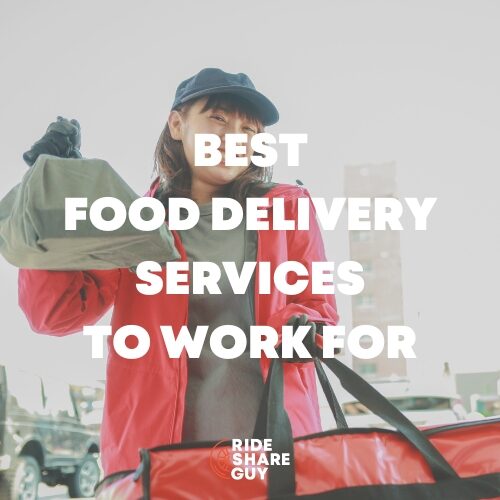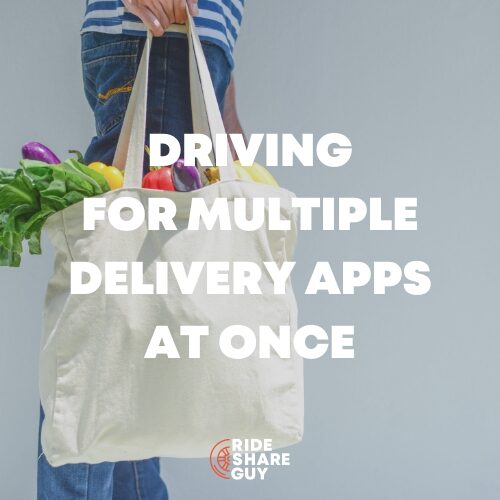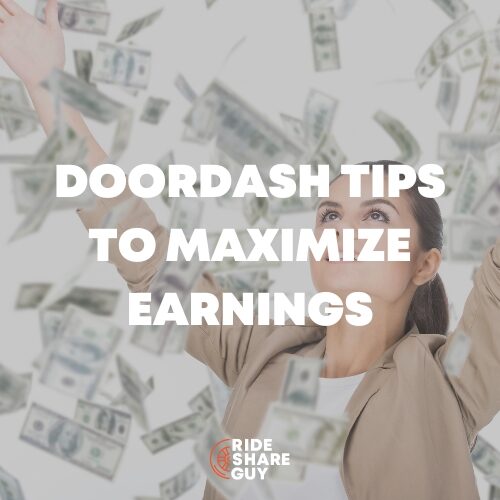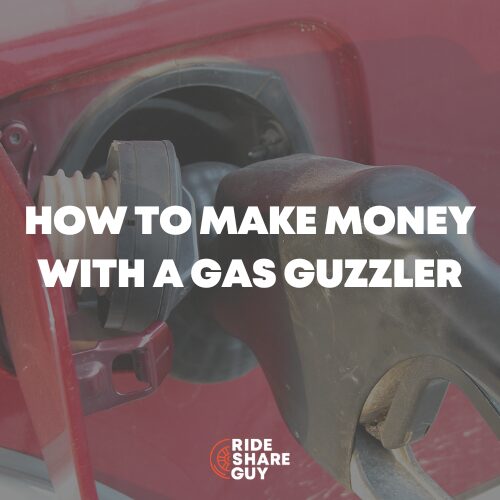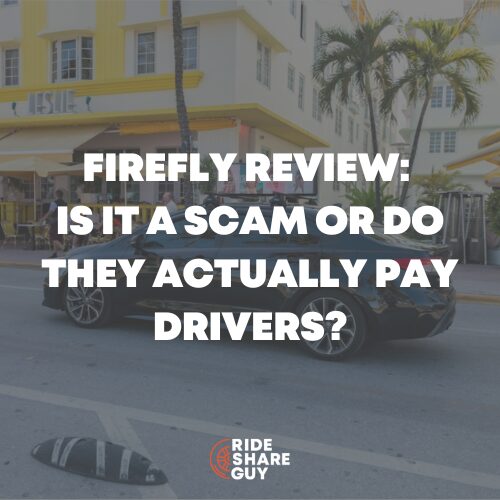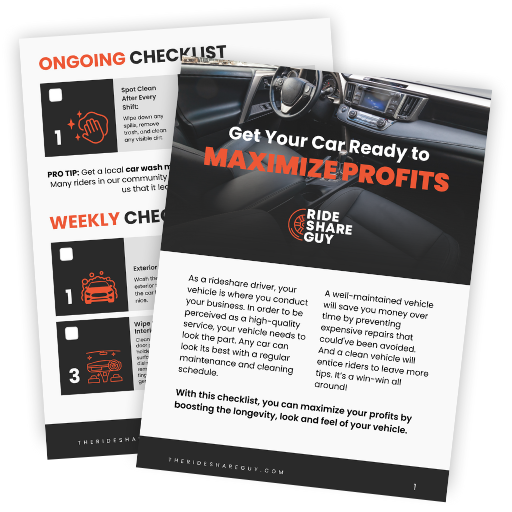If you drive for UberEats, Postmates, Lyft, or other similar services, auto insurance is a requirement. Gig apps will generally verify your coverage upfront when you submit your application, and some services like Uber X will request proof every year afterward to make sure you remain in compliance. Others may only do the occasional spot check.
Coverage is essential. You want to comply with the app’s requirements and all state and local laws. And beyond that, you want coverage for yourself and your vehicle in the event of an accident. No one plans to nick a car or to get rear-ended, but if it happens while you’re working and you’re not covered, this can turn into a major ordeal.
This article will cover what you need to know about getting auto insurance coverage if you deliver or drive for a gig economy app. It’s actually quite affordable and the process is not scary or difficult.
We’ll explain the different insurance options for independent contractor delivery drivers, talk cost, and answer the most common questions that readers have. The article will also address.
Do Delivery Companies Cover Drivers in an Accident?
Many delivery and ridesharing companies will offer at least some coverage in the event of a roadside accident, but this is only after your personal car insurance policy has been exhausted.
Drivers can generally add food delivery insurance to their regular auto coverage with affordably priced plans designed for contractors using their own personal vehicle. Or, they may opt for a spendier commercial auto insurance policy if they are gigging for multiple apps and want the most extensive protection.
Here’s an overview of the insurance coverage offered by some of the most popular driver and delivery apps.
Amazon Flex
Amazon does offer coverage through its commercial car insurance policy, as long as you maintain your own personal insurance policy. Amazon’s coverage includes liability insurance for collision and some more limited comprehensive coverage options. Amazon Flex’s coverage will only apply while you’re making a delivery and does not extend to any passengers in the car.
DoorDash
DoorDash app provides limited coverage for car accidents that result in bodily injury or property damage. Coverage is limited to $1 million and only applies to delivery drivers on “active delivery time” if their primary insurance coverage has denied the claim.
GrubHub
GrubHub offers no coverage whatsoever to drivers. All couriers must have their own car insurance, with a policy option that covers them while making GrubHub deliveries.
Postmates
Postmates offers limited car insurance coverage for drivers who are in an accident while making an active Postmates delivery. This is the timeframe from a delivery being accepted until the customer receives their order.
This coverage is up to $1 million in bodily injury and/or property damage to third parties, and will only kick in after your own personal coverage has been exhausted.
Postmates does offer supplemental insurance options for drivers, but these are in addition to a driver’s only private policy.
Uber Eats
Rideshare giant Uber X owns and operates the restaurant delivery service, Uber Eats. The app offers drivers limited liability coverage of up to $1 million for accidents that occur during an active delivery. This plan does not apply in the state of New York where drivers may receive coverage of up to $100,000 for accidents that occur in between deliveries.
In order to qualify for this type of coverage, a driver must have their own comprehensive and collision insurance. Additionally, there is a $$2,500 deductible a driver must meet for Uber Eats’ insurance benefits.
Shipt
Delivery platform Shipt does offer drivers limited liability coverage, however, it only applies to drivers who are actively logged into the app and who are transporting a customer’s order in their vehicle.
If you are on your way to the store to pick up an order, or on the way back after a drop-off, there is no coverage in the event of an accident.
As with other drivers, Shipt couriers are expected to have their own auto insurance coverage.
Does Personal Car Insurance Cover Delivery Drivers?
No. When you use your personal vehicle to deliver goods as a paid service, this activity falls outside of typical car insurance coverage. In some instances, your personal policy could be canceled or the rates could get hiked.
You can, however, add supplemental coverage to your personal auto policy. This will cover you in the event of an accident while making deliveries.
Reach out to your provider and ask for insurance quotes for a business-use policy add-on.
It may be an excellent time to compare auto insurance rates among other carriers too. You may wind up getting more coverage and saving money by switching auto insurance providers.
Also in some circumstances, a commercial policy may be a good idea.
Can You Make Deliveries without Delivery Insurance?
Drivers are required to have car insurance that meets minimum state and local requirements and also offers coverage for deliveries. Can you get away with making deliveries without this coverage? Possibly. But it’s not a good idea. Beyond ethics, it’s a risky move.
The occasional accident happens when driving to and from work as it is, and when your job is to spend a lot of time on the road, the odds are greatly increased. If there is an accident, your claim would almost certainly be denied. Your policy could get canceled.
Even more detrimental financially, you could lose your delivery job and wind up liable for accident damages.
Different Types of Car Insurance for Delivery Drivers
If you deliver food, groceries, or even passengers, there are different types of car insurance options for drivers. Here’s a rundown of the available options.
Commercial Policy
A commercial policy is almost always the most expensive option for delivery and rideshare drivers. It can cost twice as much money, or more, than cheaper car insurance options for delivery drivers. But a commercial policy will give you the best protection.
This is the type of policy that will cover long-distance transport drivers (truckers), professional vehicle fleets, or business owners who use their vehicles specifically for business purposes. But some delivery gig workers who do a lot of driving with their personal vehicle may opt for a commercial auto policy.
Rideshare Policy
Many insurance companies will offer a rideshare policy. The cost and amount of coverage it provides can vary by provider.
Some will only provide coverage when you are in between orders, but some may cover you when you’re officially on active delivery.
It’s specially designed to meet the needs of delivery-app workers and generally, it’s a lot cheaper than commercial coverage.
This may be a standalone policy that you purchase directly from a carrier, but more commonly, this insurance costs less if you can purchase it as an add-on to your existing coverage.
Business-Use Policy
This is another term for commercial-use auto insurance. It’s business insurance for business driving. The term “business-use” can also refer to a personal auto insurance add-on.
Personal Auto Insurance Policy
There isn’t a specific personal auto insurance policy that will cover you for rideshare driving. By its definition, the policy is designed to cover you for personal vehicle usage. However, there are different riders, like business-use or rideshare-use, you can add on to your personal plan for added protection.
When an app verifies that a new food delivery driver has coverage, it won’t examine the policy in great detail. It’s up to you to ensure your own compliance.
So if you apply to be a driver for Uber Eats with your personal car insurance coverage, but don’t disclose to the carrier that you will be doing Uber, this actually puts you out of compliance with both the rideshare app and your insurance company.
In the event of an accident, you will have difficulty with both the delivery app and your auto insurance company.
Car Insurance for Seasonal Delivery Drivers
As many delivery workers are seasonal, there is a seasonal need for driver insurance.
Whether you’re driving just for Amazon’s Prime Day events or doing DoorDash for only Black Friday, you will still need coverage.
Here, the best option is to ask for a business-use endorsement or policy add-on. You can speak with an insurance agent from your existing provider.
It will cost extra money but offer the added protection you need for safety and compliance.
In most instances though, you will need to talk to the provider and ask them to remove the additional coverage after your seasonal driving work is done. In some cases though, it may expire upon a set date.
If you do end up driving for the app for longer than you had intended, make sure to actively extend the coverage or find another policy option. Remember: Many holiday or seasonal gigs do become long-term.
Best Car Insurance Carriers for Delivery Drivers
Here are some of the best coverage options for delivery drivers to consider. Insurance decisions, like insurability and rates, will vary based on many factors including your age, zip code, driving record, and vehicle type.
1. Progressive
Progressive offers insurance for delivery drivers through rideshare coverage. Drivers can add it to their personal auto policy. This additional coverage is available in most states and allows drivers to keep their existing coverage limits and deductibles. For states without rideshare coverage options, you would need to purchase a Progressive commercial policy.
When delivery and rideshare driving, the carrier provides primary coverage for any first accident that occurs while making a delivery. For any accidents after, Progressive provides secondary coverage.
States offering Progressive rideshare insurance coverage: AL, AZ, AR, CO, DC, FL, GA, ID, IL, IN, IA, KY, LA, MA, MI, MN, MS, MO, NE, NM, ND, OH, OK, PA, RI, SD, TN, TX, UT, VA, WA, WV, WI, WY
2. Geico
Geico offers a rideshare insurance option, but it is a new, blended plan for personal and business use and not an add-on to an existing policy. This hybrid offering is unique to Geico. Deductibles are quite low, and coverage is available in over 40 states.
States offering Geico delivery and rideshare insurance coverage: AL, AZ, AR, CA, CO, CT, DC, DE, FL, GA, Hi, ID, IL, IN, IA, KS, LA, ME, MD, MA, MI, MN, MS, MO, MT, NE, NH, NM, ND, OH, OK, OR, PA, RI, SC, SD, TN, TX, UT, VT, VA, WA, WV, WI, WY
3. USAA
Like Geico, USAA is known for offering affordable car insurance rates well below the national average costs. USAA offers rideshare gap coverage that drivers can purchase as an add-on to their personal car insurance policy.
This offers protection for when you are in between deliveries, a period when food delivery services do not provide any coverage. It’s easy to add on this option online or by talking to an agent.
While USAA driver coverage is not as widely available as other carrier options, it is perhaps the cheapest delivery or rideshare option you’ll find. Adding on this endorsement may cost as little as $6 a month.
States offering USAA delivery and rideshare coverage: AL, AR, AZ, CA, CO, CT, DC, DE, FL, GA, ID, IL, IN, IA, KS, KY, LA, ME, MD, MA, MN, MS, MO, NE, NV, NH NJ, ND, OH, OK, OR, TN, TX, UT, VT, WA, WV, WI, WY
4. State Farm
Carrier State Farm offers two different programs for individuals who drive for apps like DoorDash, Lyft, or Amazon Flex.
For those who transport goods or food, they can sign up for a regular auto insurance policy and then indicate occasional “business use” during registration.
Drivers who transport passengers instead of, or in addition to other goods, can obtain Rideshare Driver Coverage. This is additional coverage you add to your personal policy, and it will increase your premiums by about 15% to 20%.
States offering State Farm rideshare coverage: AL, AK, AR, CA, CO, CT, DC, DE, FL, HI, ID, IL, IN, IA, KS, KY, LA, ME, MD, MA, MI, MN, MS, MO, MT, NE, NV, NH, NJ, NM, NY, NC, ND, OH, OK, OR, PA, RI, SC, SD, TN, UT, VT, VA, WA, WV, WI, WY
5. Allstate
Allstate offers specialty coverage called Ride for Hire. It offers coverage for delivery drivers and rideshare drivers. Ride for Hire is extra protection that you can add onto an existing policy.
Adding Ride for Hire can add around $30 to your monthly premium, but rates can vary based on your age, location, driving history, and type of vehicle.
States offering Allstate driver coverage: AL, AK, AZ, AR, CA, CO, CT, DC, DE, FL, GA, HI, ID, IL, IN, IA, KS, KY, LA, ME, MD, MA, MI, MN, MS, MO, MT, NE, NV, NH, NJ, NM, NC, ND, OH, OK, OR, PA, RI, SC, SD, TN, TX, UT, VT, VA, WA, WV, WI, WY
Frequently Asked Questions
Here are some of the most commonly asked questions that delivery app drivers have about insurance coverage.
Can you write off car insurance for DoorDash?
Yes, up to the percentage of time you spend driving for your business though. So if you use your car half of the time for personal use and the other half for GrubHub, then you could claim half of your car insurance as a business expense. You could also claim the same proportionate amount for gas, repairs, and maintenance.
In this above scenario, you’d need to deduct your actual vehicle expenses instead of the other option for taxpayers which is to use standard mileage deduction. That rate was set at 65.5 cents per mile in January 2023. You can only claim the miles put on your vehicle while making deliveries though.
With the standard or per mile deduction, market costs for car insurance, gas, maintenance, repair, and mileage depreciation are built into the figure.
Speak with a tax professional so they can give you personalized advice for your specific circumstances.
Who needs delivery driver insurance?
Anyone who drives for a delivery service. Even if the app does not specifically require or proof of coverage, your own personal policy will not cover you in the event of an accident. Any subsequent insurance claim you file would likely be denied.
You do not want to find yourself in a situation with a totaled vehicle that you can’t repair and without your mode of work.
State and local laws may also mandate this coverage. Depending on your location or type of delivery job you have, you may need to get commercial auto insurance, which is more expensive than getting a personal policy add-on for gig workers.
Will my insurance go up if I DoorDash?
Yes, your rates will go up because you are driving for a business but generally not by much.
There are many DoorDash drivers, called Dashers, who have not told their insurance company that they started dashing in order to keep their rates down. However, when they get into an accident it becomes a total mess.
Drivers we’ve talked to have said adding on extra coverage for DoorDash has increased their premiums anywhere from 10% to 40%.
With the average cost for full coverage insurance at $2,150 a year ($179 a month), an extra $18 a month isn’t bad. And you can always switch to a different car insurance company to get a better rate.
What happens if you get into an accident while making a delivery?
If you get into an accident while making an active delivery, the employer or business is responsible. However, it is not always clear-cut in determining who is at fault. And different delivery apps may have different definitions of what it means to be making an “active delivery.”
In the event of a workplace injury though, there is generally full medical coverage for drivers.
Driver’s Take
Whether you make food deliveries part-time or full-time, or just for the off-season when you need extra income, make sure that you’re covered. You’ll protect your job, your vehicle, and your livelihood.
Even if you have personal coverage for your own vehicle, that doesn’t cover you if you get in an accident while working.
Exploring the different policy add-ons for rideshare and delivery app coverage. It may sound stressful or expensive, but it’s not.
There are plenty of free policy comparison tools to help you get free quotes within budget.
The right coverage for your needs could start at less than a quarter a day ($6 a month), you can add rideshare coverage to an existing vehicle policy
How We Chose the Best Delivery Driver Insurance Companies
When examining the best delivery driver insurance options, we looked at a number of factors including cost of premiums, deductibles, geographic availability, policy limits, third-party ratings by other insurance experts, and reviews from existing delivery driver policyholders.
The best coverage options in your area or for your vehicle and your driver profile may vary. A broader comparison of delivery driver coverage options for your zip code may provide you with the most relevant or geo-specific information.
